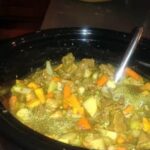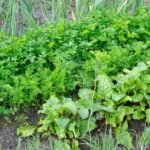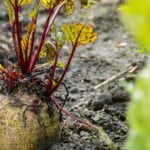Cottonseed meal is a widely used organic fertilizer that provides numerous benefits to vegetable gardens. This article explores the various ways in which cottonseed meal can enhance the health and productivity of your vegetable plants, as well as how to effectively incorporate it into your gardening routine. From its nutritional benefits to dos and don’ts of usage, we will cover everything you need to know about utilizing cottonseed meal for your vegetable garden.
Cottonseed meal is a natural byproduct of the cotton industry and is rich in essential nutrients that are beneficial for plant growth. In this section, we will delve into what exactly cottonseed meal is, its composition, and how it can positively impact the overall health and yield of your vegetable garden. Whether you’re a seasoned gardener or just starting out, understanding the basics of cottonseed meal is crucial for maximizing its benefits in your gardening endeavors.
Furthermore, we will explore the practical aspects of using cottonseed meal in vegetable gardens, such as the best application methods, ideal vegetables to use it for, and tips for incorporating it into your soil. Additionally, we’ll highlight common mistakes to avoid when using cottonseed meal so that you can make the most out of this organic fertilizer.
Stay tuned as we provide insights and case studies showcasing success stories of vegetable gardens that have thrived with the help of cottonseed meal.
The Nutritional Benefits of Cottonseed Meal for Vegetable Plants
Cottonseed meal is a natural fertilizer that can provide several nutritional benefits to vegetable plants. This section will explore the specific nutrients found in cottonseed meal and how they contribute to the healthy growth of vegetable plants.
Nitrogen Content
One of the primary nutritional benefits of cottonseed meal for vegetable plants is its high nitrogen content. Nitrogen is essential for plant growth, as it plays a key role in the development of leaves and stems. By incorporating cottonseed meal into your vegetable garden soil, you can ensure that your plants have access to the nitrogen they need to thrive.
Phosphorus and Potassium
In addition to nitrogen, cottonseed meal also contains significant amounts of phosphorus and potassium. These two nutrients are crucial for promoting strong root development and overall plant health. By using cottonseed meal in your vegetable garden, you can provide your plants with a balanced supply of these essential nutrients.
Slow Release Nutrients
Another benefit of cottonseed meal is that it provides a slow release of nutrients to the soil. This means that the nutrients in cottonseed meal are gradually broken down and made available to plants over time, providing a steady source of nutrition throughout the growing season.
How to Use Cottonseed Meal in Vegetable Gardens
When it comes to using cottonseed meal in vegetable gardens, there are some important dos and don’ts to keep in mind to ensure the best results for your plants. Cottonseed meal is a valuable organic fertilizer that can provide numerous benefits to your vegetable garden when used properly. Here are some guidelines for using cottonseed meal effectively:
Dos:
- Do follow the recommended application rates for cottonseed meal based on the specific needs of your vegetable plants.
- Do mix cottonseed meal into the soil thoroughly to ensure even distribution of nutrients throughout the garden bed.
- Do use cottonseed meal as a slow-release fertilizer, providing long-lasting nourishment for your vegetable plants.
Don’ts:
- Avoid over-applying cottonseed meal, as excessive amounts can lead to nitrogen burn and other nutrient imbalances in the soil.
- Avoid using cottonseed meal on acid-loving plants such as blueberries or rhododendrons, as it may raise the pH levels of the soil.
- Avoid applying cottonseed meal too close to plant stems, as it may cause root burn and damage to the plants.
By following these dos and don’ts, you can make the most of cottonseed meal’s benefits while avoiding potential pitfalls in its usage.
When incorporating cottonseed meal into your vegetable garden soil, it’s important to consider the overall health of your garden and how this natural fertilizer can support its growth. One key tip is to perform a soil test before adding any amendments, including cottonseed meal.
This will help you understand the current nutrient levels in your soil, allowing you to make informed decisions about how much cottonseed meal to use and whether any additional nutrients are needed for optimal plant growth.
Additionally, it’s essential to monitor your plants’ response to the cottonseed meal application, adjusting its usage based on their observed needs. With careful attention and proper implementation, cottonseed meal can be an effective tool for nurturing a thriving vegetable garden.
The Best Vegetables to Use Cottonseed Meal For
When it comes to using cottonseed meal for vegetable gardens, not all plants benefit equally from this natural fertilizer. Here is a comprehensive guide to help you determine the best vegetables to use cottonseed meal for:
1. Tomatoes: Cottonseed meal is an excellent choice for promoting healthy root development in tomato plants. Its high nitrogen content also helps with the growth and fruit production of tomatoes.
2. Peppers: Whether it’s bell peppers, chili peppers, or sweet peppers, all varieties benefit from the use of cottonseed meal. The slow-release nature of cottonseed meal ensures a steady supply of nutrients for pepper plants throughout the growing season.
3. Squash: Zucchini, butternut squash, and other types of squash thrive when cottonseed meal is incorporated into the soil. The balanced nutrients in cottonseed meal support the vigorous growth and fruiting of squash plants.
4. Lettuce: Leafy greens like lettuce respond well to the application of cottonseed meal. The nitrogen in this natural fertilizer encourages healthy leaf development and overall plant growth.
5. Cucumbers: Cucumber plants appreciate the boost of nitrogen provided by cottonseed meal. This results in vibrant green foliage and an abundance of crisp, juicy cucumbers.
6. Green Beans: Whether it’s bush beans or pole beans, both types benefit from the use of cottonseed meal for vegetable gardens. The slow-release nutrients in cottonseed meal support strong vine growth and bountiful bean production.
By incorporating cottonseed meal into the soil of your vegetable garden, you can enhance the growth and productivity of these select vegetables while promoting overall soil health and fertility. Remember to always follow recommended application rates according to specific plant needs to avoid over fertilization.
Tips for Incorporating Cottonseed Meal Into Your Vegetable Garden Soil
Cottonseed meal is a popular organic fertilizer that can provide numerous benefits to your vegetable garden. When used correctly, it can improve soil quality and provide essential nutrients for optimal plant growth. Here are some tips for effectively incorporating cottonseed meal into your vegetable garden soil.
Understanding the Nutritional Content
Before using cottonseed meal in your vegetable garden, it’s important to understand its nutritional content. Cottonseed meal is a rich source of nitrogen, phosphorus, and potassium, making it an excellent all-around fertilizer for vegetables. Additionally, it contains essential micronutrients such as calcium and magnesium, which are vital for healthy plant development. Knowing the nutritional content of cottonseed meal will help you determine the appropriate application rate for your specific vegetable plants.
Application Rates and Timing
When incorporating cottonseed meal into your vegetable garden soil, it’s crucial to follow recommended application rates and timing guidelines. Overuse of cottonseed meal can lead to nitrogen burn or nutrient imbalances in the soil, which can harm your plants.
It’s best to apply cottonseed meal before planting or as a side-dressing during the growing season. Be sure to carefully follow the instructions on the packaging and consider conducting a soil test to determine the specific needs of your garden.
Complementing With Other Amendments
While cottonseed meal is beneficial on its own, it can also be combined with other soil amendments to maximize its effectiveness. Mixing cottonseed meal with compost or other organic matter can enhance its nutrient-retention properties and improve overall soil structure. Additionally, combining cottonseed meal with additional sources of slow-release nutrients can ensure a steady supply of nutrition for your vegetable plants throughout the growing season.
By following these tips for incorporating cottonseed meal into your vegetable garden soil, you can effectively enhance the health and productivity of your vegetable plants while maintaining sustainable gardening practices.
Common Mistakes to Avoid When Using Cottonseed Meal in Vegetable Gardens
When using cottonseed meal in vegetable gardens, it is important to be aware of common mistakes that can undermine the effectiveness of this natural fertilizer. One common mistake to avoid is using too much cottonseed meal at once. While it is a great source of slow-release nitrogen, excessive application can lead to nitrogen burn in the soil and damage to your vegetable plants.
Another mistake to avoid is not properly incorporating cottonseed meal into the soil. Simply scattering the meal on top of the soil may result in uneven distribution and slow breakdown of the nutrients. It is important to mix the cottonseed meal thoroughly into the top few inches of soil to ensure an even distribution of nutrients for your vegetable plants.
Additionally, a common mistake when using cottonseed meal for vegetable gardens is applying it too close to planting time. Cottonseed meal takes some time to break down and release its nutrients, so it is best to apply it several weeks before planting your vegetables. This allows for proper incorporation into the soil and ensures that the nutrients will be available for your plants when they need them most.
By avoiding these common mistakes, gardeners can make the most out of using cottonseed meal in their vegetable gardens, ensuring healthy and productive plants throughout the growing season.
Case Studies
Cottonseed meal for vegetable gardens is a great organic fertilizer option that provides numerous benefits to vegetable plants. Many successful vegetable gardeners have incorporated cottonseed meal into their gardening routines and have seen impressive results. In this section, we will explore some case studies and success stories of vegetable gardens using cottonseed meal, highlighting the positive outcomes and lessons learned from real-life experiences.
One success story comes from a small-scale vegetable garden in the Midwest. The gardener had been struggling with poor soil quality and lackluster plant growth for years. After researching organic fertilizers, they decided to give cottonseed meal a try. They carefully followed the dosage recommendations and incorporated the cottonseed meal into their soil before planting their vegetables. Within a few weeks, they noticed significant improvement in plant growth, with healthier leaves, robust stems, and increased fruit production.
Another case study involves a community garden project in an urban area. The organizers of the garden wanted to use sustainable and environmentally friendly practices to grow their vegetables. After consulting with local horticulturists, they decided to use cottonseed meal as part of their garden management plan. The result was remarkable – the community garden not only produced abundant harvests but also attracted more participants and volunteers due to its eco-friendly approach.
These case studies demonstrate the positive impact of incorporating cottonseed meal into vegetable gardens. By following best practices and understanding how to use this organic fertilizer effectively, gardeners can achieve thriving, productive vegetable plants while promoting sustainable gardening practices.
| Case Study | Location | Outcome |
|---|---|---|
| Small-Scale Garden | Midwest | Significant improvement in plant growth |
| Community Garden Project | Urban Area | Abundant harvests & increased participation |
Conclusion
In conclusion, the use of cottonseed meal in vegetable gardening has been proven to be a valuable and beneficial practice for the health and growth of vegetable plants. Its nutritional benefits, including its high protein and nitrogen content, make it an ideal organic fertilizer for promoting strong, vibrant vegetables. Additionally, its ability to improve soil structure and water retention further enhances the overall health of the garden.
As more gardeners recognize the advantages of using cottonseed meal for their vegetable gardens, its future in gardening looks promising. With proper application and adherence to dos and don’ts, it can continue to be a sustainable and eco-friendly option for boosting plant growth while maintaining soil health.
As more research is conducted and case studies show successful results, we can expect to see an increase in the use of cottonseed meal in vegetable gardens. Its potential as a natural and effective fertilizer will most likely lead to greater adoption by home gardeners and professional growers alike.
So whether you’re new to using cottonseed meal or have been incorporating it into your gardening routine for years, its future prospects point towards continued success in enhancing vegetable plant health and yields.
Frequently Asked Questions
Is Cottonseed Meal Good for Vegetables?
Cottonseed meal can be a good source of nutrients for vegetables, as it is rich in nitrogen, phosphorus, and potassium. It can help promote healthy root development and overall plant growth.
Is Cottonseed Meal Good for Tomato Plants?
Cottonseed meal can benefit tomato plants by providing them with essential nutrients like nitrogen and potassium. These nutrients can help improve fruit quality and increase resistance to diseases.
How Do You Use Cottonseed Meal as Fertilizer?
To use cottonseed meal as fertilizer, you can spread it around the base of the plants in the garden or mix it into the soil before planting. It’s important to follow the recommended application rates to avoid over-fertilizing and damaging the plants.

If you’re looking to get into vegetable gardening, or are just looking for some tips on how to make your current garden better, then you’ve come to the right place! My name is Ethel and I have been gardening for years. In this blog, I’m going to share with you some of my best tips on how to create a successful vegetable garden.





